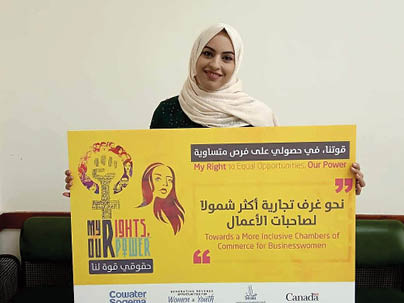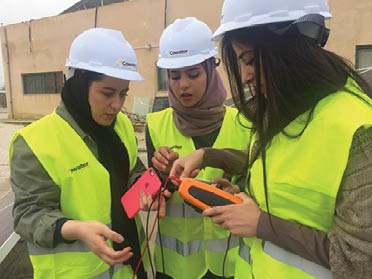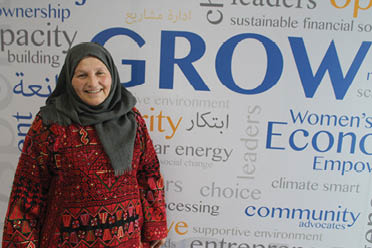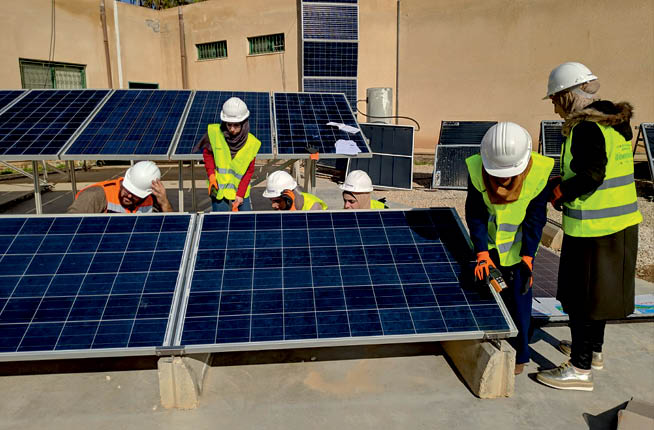Funded by the Government of Canada and implemented by Cowater International in close cooperation with the Ministry of National Economy, the Generating Revenue Opportunities for Women and Youth (GROW) project aims to empower low-income women and youth, particularly female youth, in the West Bank and provide them with the means to build and improve their livelihoods. The project responds to the development needs of and addresses the challenges faced by female entrepreneurs, helping them move beyond their essential but largely unrecognized roles. GROW contributes to women’s increased voice and agency in both the social and economic spheres while enhancing the overall productivity and competitiveness of women-led micro, small, and medium enterprises (MSMEs) in the agribusiness sector.
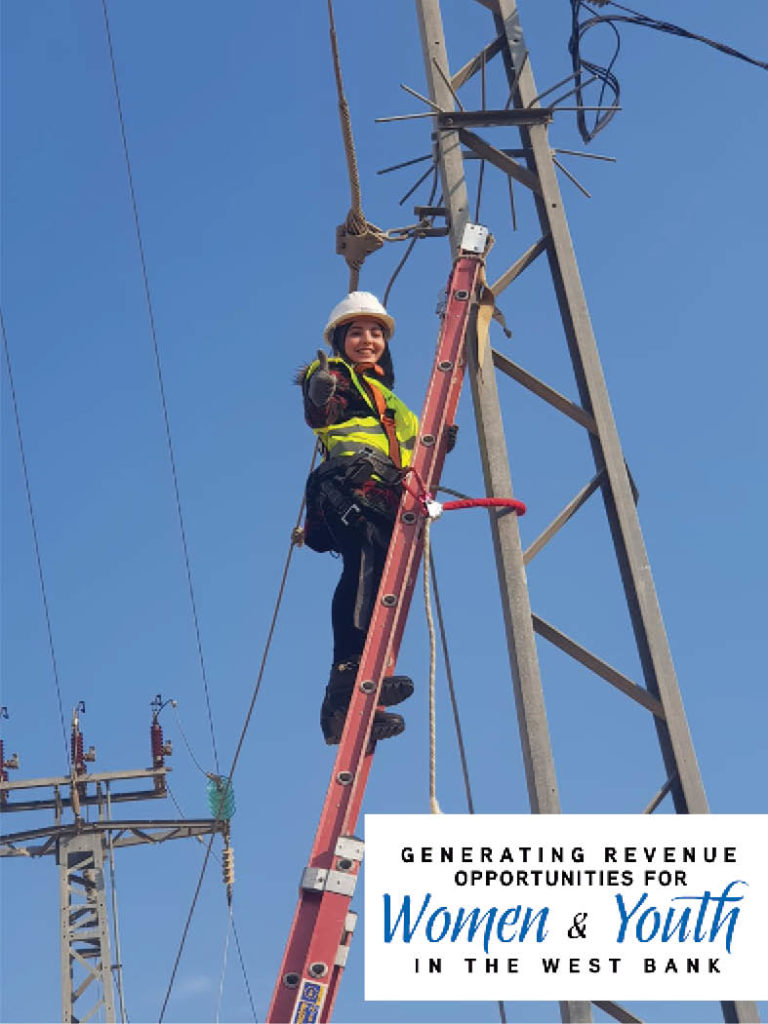
To achieve the desired outcomes, GROW addresses several key challenges that impact the entrepreneurship of women in the West Bank. These challenges include the prevalence of socio-cultural barriers that impact on women’s roles and status in households, the community, and the economy, as well as women’s limited access to finance, business development-support services, technology, reliable and affordable energy sources, opportunities for skill development, and access to markets.
The (GROW) Project focuses on three inter-related intermediate outcomes.
It 1) reduces barriers to entrepreneurship faced by women; 2) enhances opportunities for women entrepreneurs, helping them to establish and/or grow successful, sustainable businesses; and 3) encourages female entrepreneurs, particularly female youth, to support and promote the adoption of renewable energy among enterprises run by women.
Over the past two years, GROW has worked with more than one thousand low-income women across the agribusiness sector through tailored interventions that address skills gaps in areas such as business and finance, product development, packaging, and labeling. Participants have been coached by experts and then awarded small grants that aim to kick-start or expand the women’s typically small-scale or home-based businesses. At the same time, GROW empowers and integrates young female engineers in non-traditional technical fields such as the renewable energy and energy efficiency sector. Specifically, the project provides opportunities to promising female recent-graduates specialized in engineering fields related to energy and power generation to gain critical work experience through technical training. This is followed by job placement with private or public sector employers in cooperation with the Engineers Association-Jerusalem Center. Through existing placements, GROW trainees are already contributing to the designing of systems that can be utilized in private homes, commercial buildings, and factories and are capable of generating up to 1 megawatt of electricity.
In the renewable energy and energy efficiency sector, GROW, in cooperation with the Palestinian Energy and Natural Resources Agency (PENRA), is incubating the West Bank’s first cadre ever of female certified energy auditors, a new field that officially has not been introduced yet in the West Bank and Gaza. The certified energy auditors will be able to work with homeowners and businesses to identify ways to reduce monthly energy bills by adopting renewable and more efficient energy solutions.
While the GROW project represents only a modest contribution to addressing the economic and cultural challenges faced by women, it is through initiatives like this – implemented in close cooperation with local stakeholders and led by a local team of dedicated experts – that Palestinian women and youth can begin to aspire to a different, more inclusive and more prosperous future.
* This article has been produced with the assistance of the Government of Canada. Its content does not necessarily reflect the views of the Government of Canada.


